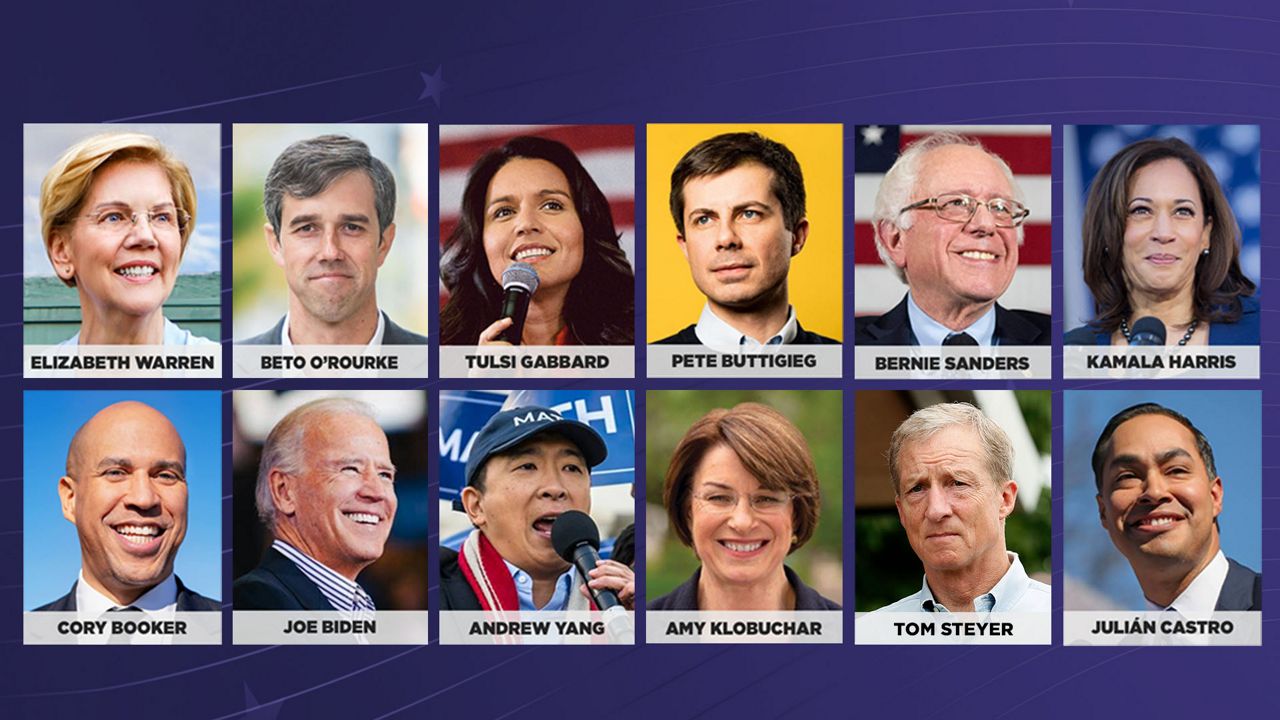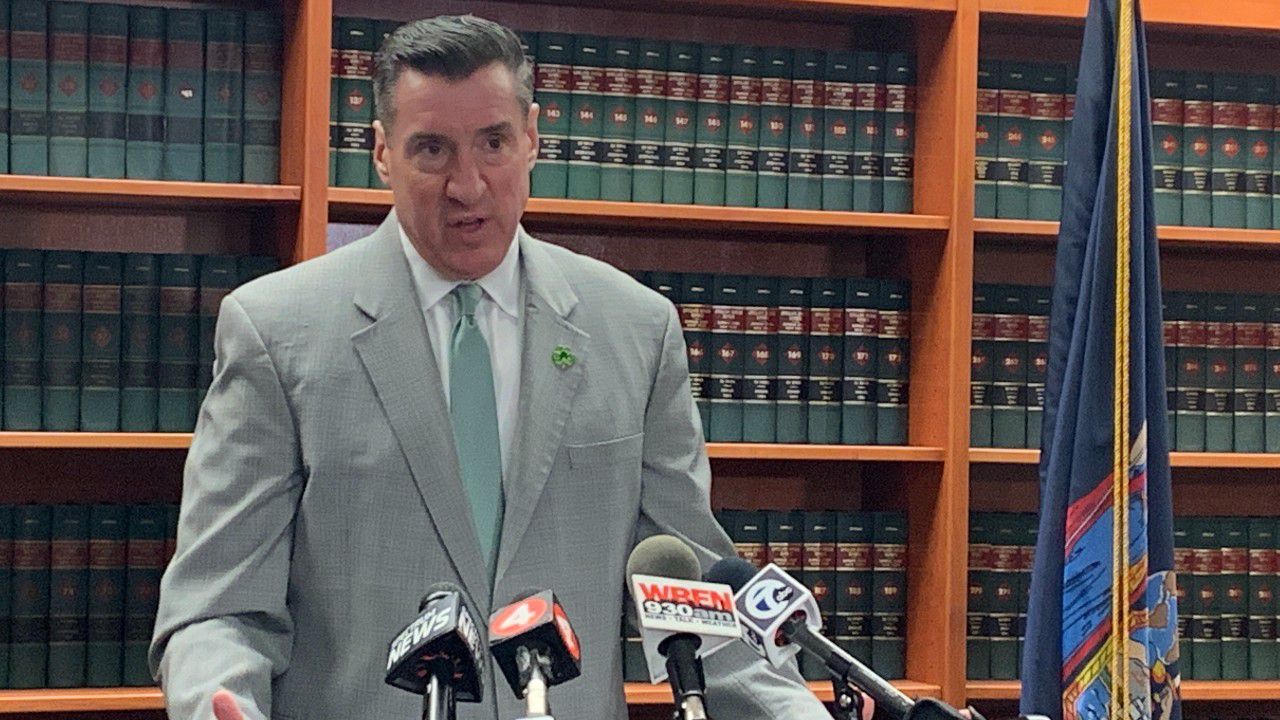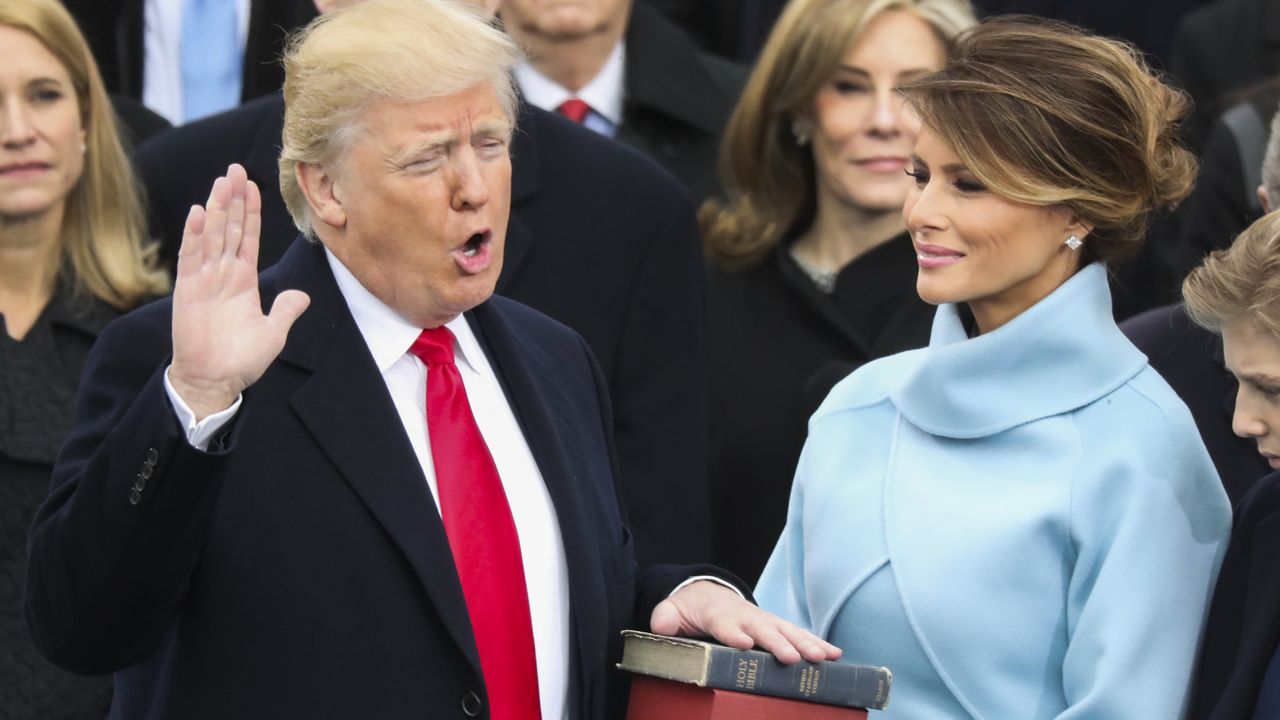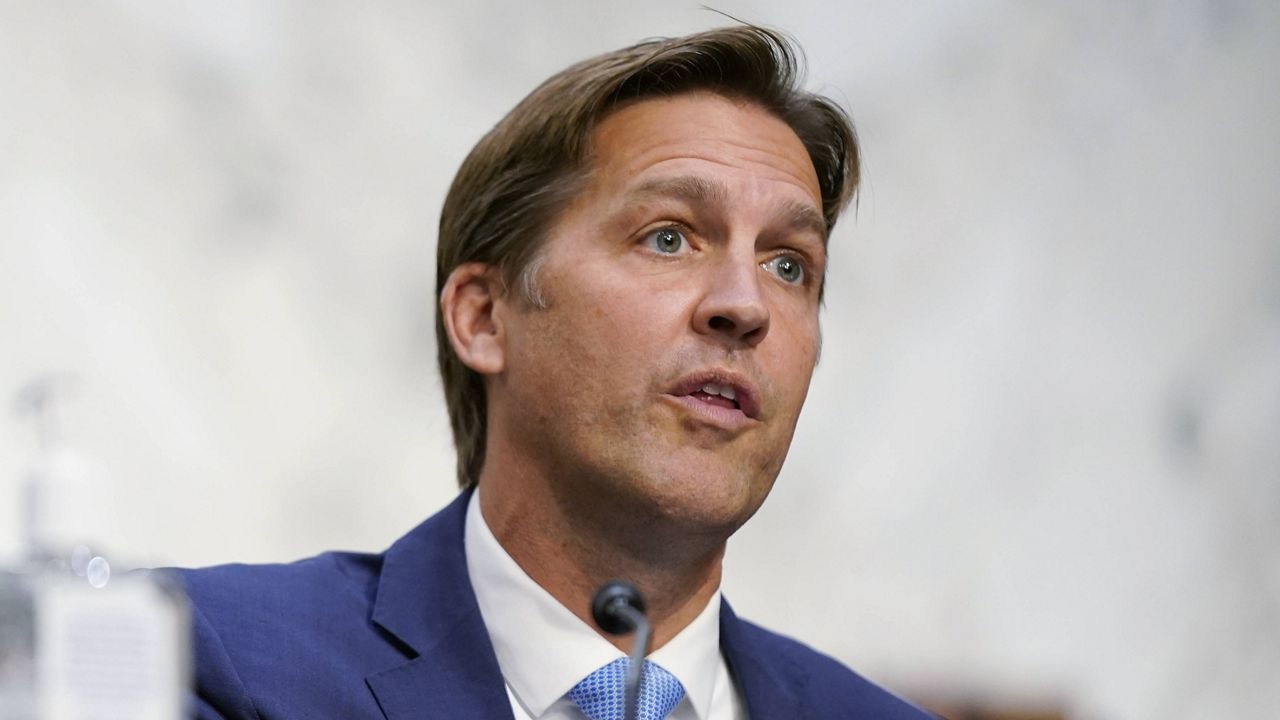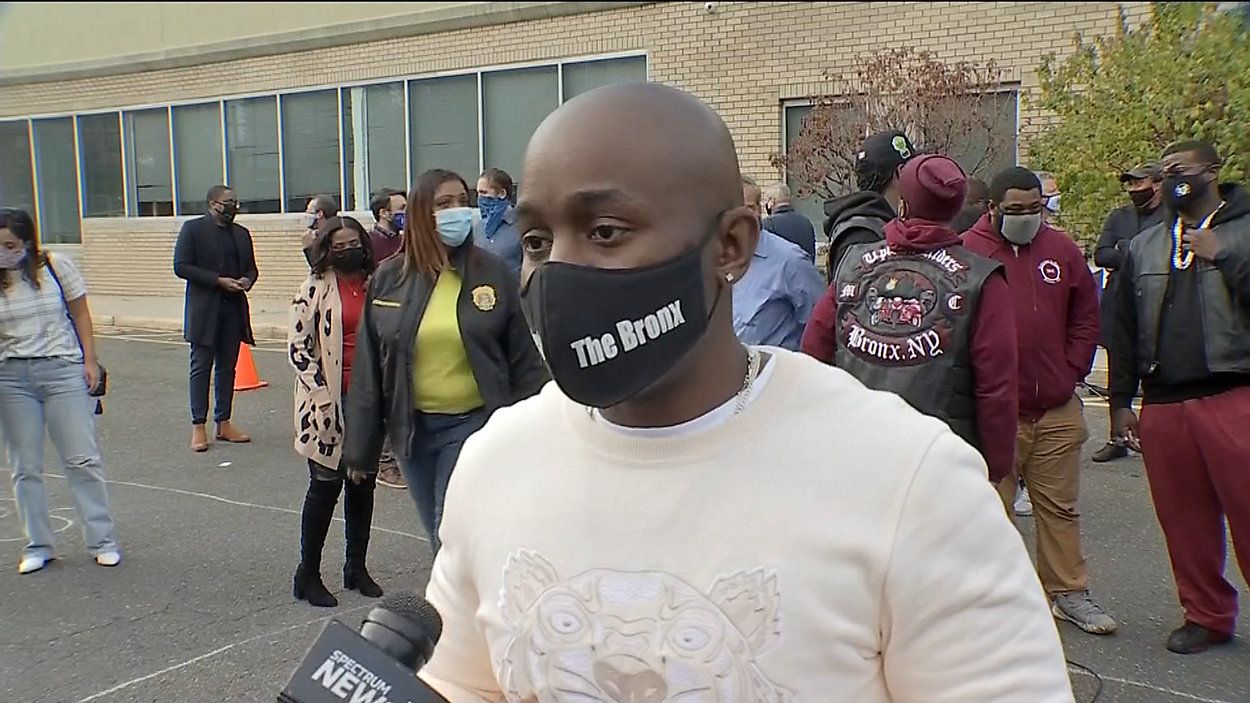For the first time, 12 Democratic candidates will take the stage Tuesday, October 15, for the fourth debate in the race for the presidential nomination.
Want to know where candidates stand on issues important to your state? Check out our chart.
The debate will be held at Otterbein University in Westerville, Ohio, a swing state that Donald Trump won, 51 percent to 43 percent, against Hillary Clinton in 2016. It will begin 8 p.m. EST and air on CNN. CNN and the New York Times will moderate.
For debate updates and analysis about the issues that matter to you, follow Spectrum News on Twitter, Facebook, and Instagram.
Here's a guide to prepare you to watch the debate like a pro:
IMPEACHMENT WILL BE CENTER STAGE
Since the third debate, House Democrats have launched an impeachment inquiry against President Donald Trump over the president asking Ukraine to investigate the son of former Vice President Joe Biden, who is now a frontrunner for the Democratic nomination. With Biden on the debate stage in Westerville, and near-daily updates dominating national news coverage, impeachment is expected to be a hot topic.
Biden has been a central part of the conversation as Trump and some Republicans have attempted to pivot the conversation to focus on the Democrat. Biden was vice president when his son Hunter was on the board of an energy company owned by a Ukrainian businessman. For months, Trump has called for more scrutiny of that period, alleging corrupt motives in the business and government work of the Biden family, without putting forward evidence of wrongdoing.
Biden has dismissed the suspicion, but debate moderators could press him on the propriety of Hunter Biden's position, no matter the legality.
All the candidates debating have come out in support of the impeachment inquiry. Like Biden, however, they will likely be pressed for more details on their stances.
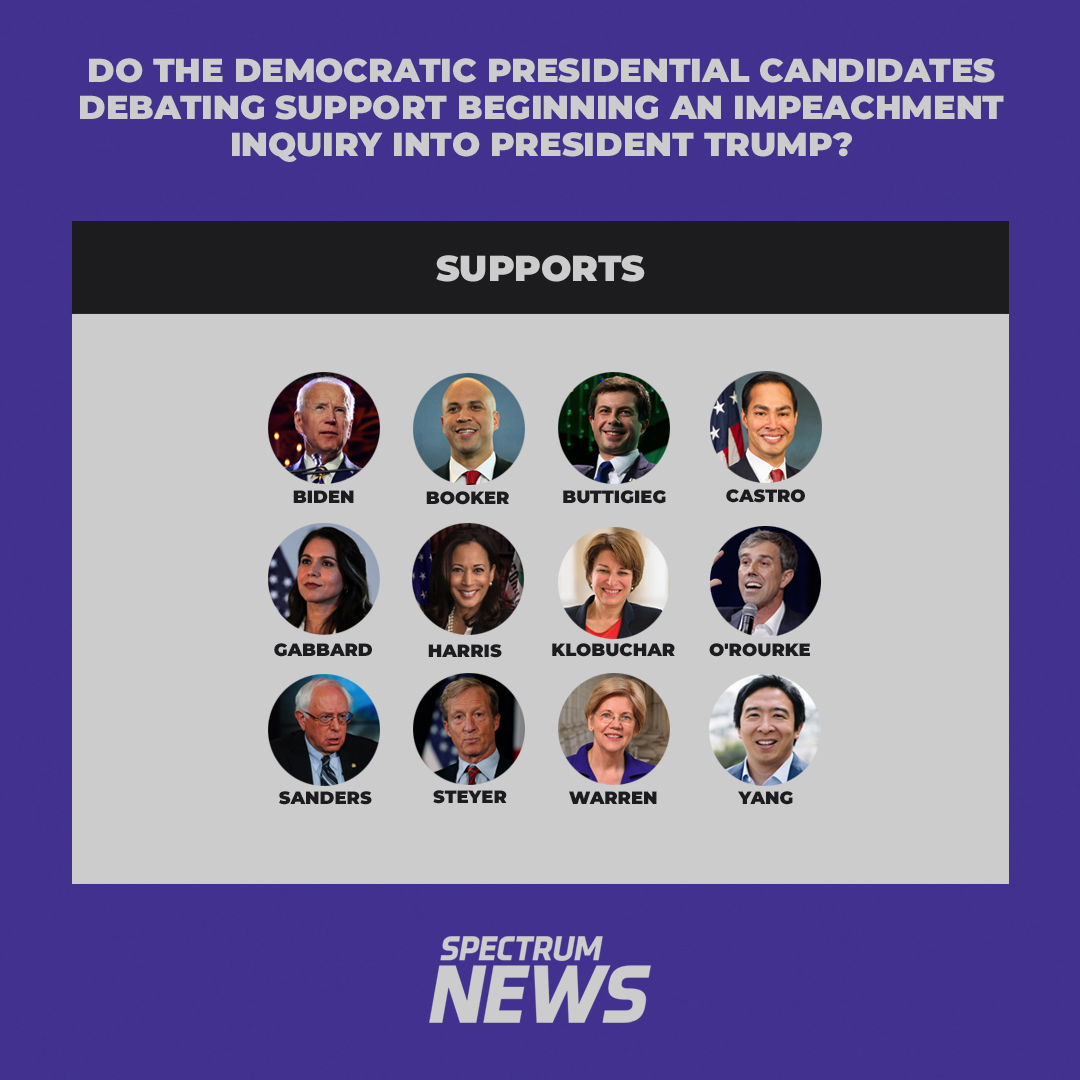
Some, such as New Jersey Sen. Cory Booker, have long called for Trump to be removed from office over concerns his campaign colluded with Russia in the 2016 election. Businessman and activist Tom Steyer, in fact, paid for billboards calling for Trump to be impeached — in 2017. Don't be surprised, then, if the more liberal candidates espouse aggressive pro-impeachment stances on stage to appease the Democratic base.
Other candidates, however, may call for the House to gather the facts first, a popular line for more moderate Democrats and Republicans. Some, like Vermont Sen. Bernie Sanders, support the beginning of an impeachment inquiry but stop short of endorsing the president be removed from office. While support for impeachment has grown since the last debate, it remains a highly divisive issue. Some Democrats fear pursuing it will galvanize Republicans next year and tip independents toward Trump in the general election.
WILL WARREN AND BIDEN CLASH?
The much-hyped Elizabeth Warren-Joe Biden clash of the third debate mostly fell flat, with Sanders and former Housing and Urban Development Secretary Julian Castro getting more attention for their confrontations with the former vice president.
Biden and Warren's competing views on health care were featured in Houston, but they didn't directly criticize each other on the issue. Biden hammered Sanders over the costs of a single-payer "Medicare For All" plan, but he didn't attack Warren directly even though she also supports "Medicare for All."
Biden and Warren are far apart on most issues. Warren wants a 2 percent tax on about 75,000 of the nation's richest households, while Biden wants to repeal the 2017 Republican tax law instead of "punishing" the wealthy. Warren supports student loan debt forgiveness up to $50,000, while Biden backs two years of tuition-free community college for every American. But they mostly steered clear of each other in the Houston debate.
Warren remains one of Biden's top rivals in the primary, though. Although Biden has around a 10-point lead nationally in the polls, according to the polling website FiveThirtyEight, Warren has steadily closed the gap since she launched her campaign. At one point, she was polling in the single-digits. Amid Warren's rise to roughly second or third in the polls, and more polls showing her competing in the early primary state of Iowa, it's safe to expect a direct clash on camera at some point. It's just a question if Westerville, about four months before voters actually start casting their ballots, will be the place.
ONE DEBATE STAGE, 12 CANDIDATES
Westerville will display new heights of debate madness, with 12 candidates facing off at once. That's two more than any other debate this primary season. Previously, the Democratic National Committee (DNC) split the stage into two nights when more than 10 candidates qualified, but it is sticking with one this time around.
The 10-candidate debate nights have proven to be hectic at times, so it's not clear how the hosts will moderate them. It's possible candidates will face more stringent limits on time, but Steyer, a new entry to the debate stage, and Hawaii Rep. Tulsi Gabbard, who returns after missing the third debate, may both try to make noise to make up for lost spotlight. It's unclear if the larger field will hurt any candidates trying to break out for a viral moment.
The Westerville scuffle could be the last debate to feature more than 10 candidates, as the DNC is moving on from the old qualification criteria:
- Receiving donations from at least 130,000 unique donors, and by receiving donations from a least 200 unique donors per state in at least 20 states.
AND
- Registering 2 percent or higher in at least four qualified polls. These include national polls, or polls conducted in Iowa, New Hampshire, South Carolina, and/or Nevada.
Instead, the fifth debate in November will require:
- Receiving donations from at least 165,000 unique donors, and by receiving donations from a least 600 unique donors per state in at least 20 states.
AND
- Registering 3 percent or higher in at least four qualified polls. These include national polls, or polls conducted in Iowa, New Hampshire, South Carolina, and/or Nevada.
OR
- Registering 5 percent or higher in two early-state polls approved by the Democratic National Committee.
Although the hill isn't a large climb for those who made the third and fourth debates, the new requirements could block some of the lower-polling candidates. As of October 8, according to FiveThirtyEight, seven candidates had met the requirements to qualify for the fifth debate.
So if you're burned out from seeing so many candidates on stage, or watching multiple debate nights, you may get relief soon. Maybe.
WHICH CANDIDATES DIDN'T MAKE IT?
Montana Gov. Steve Bullock, former Maryland Rep. John Delaney, Ohio Rep. Tim Ryan, author and activist Marianne Williamson, and Colorado Sen. Michael Bennet are the Democratic candidates who appeared in previous debates and are still in the race, but who failed to qualify for the Ohio debate.
Since the third debate, one candidate who participated in the first two debates has ended his White House bid: New York City Mayor Bill de Blasio.
What else should New Yorkers listen for in the fourth debate?
Climate Change
After massive "Climate Strikes" last month in New York City, around the country, and across the globe, it's highly likely climate change will be a topic in the debate. Broadly speaking, a majority of Americans are at least somewhat concerned about global warming, and those concerns are reflected in Democratic voters pressuring candidates to develop aggressive environmental reforms.
But while all the Democrats debating agree that the U.S. needs to take action on global warming, there is a divide over how aggressive the nation should be. The city has mostly supported policies that candidates further to the left have championed. Earlier this year, de Blasio rolled out his own version of the "Green New Deal," announcing a plan to power all city operations with clean energy sources within the next five years. Most city lawmakers have also come out in support of measures to move the five boroughs closer to becoming carbon-neutral within the next few decades. The state also passed its own legislation in June to aggressively reduce emissions statewide. During the debate, New Yorkers can pay attention to the candidates' climate plans to see how closely they align with the city and state's actions.
Taxes
Several Democratic candidates could also clash Tuesday over how far tax reform should go. While the Democrats support overturning the 2017 Republican tax law, candidates further to the left, such as Warren, want to go further by increasing taxes on the wealthy. 61 percent of Americans support Warren's proposal for taxing households that have a net worth of at least $50 million, according to a February Morning Consult poll.
With high costs in New York City, and the GOP tax law capping state and local tax (SALT) deductions at $10,000, New Yorkers may want to pay attention to how candidates potentially respond to Warren's wealth tax proposal and discussions on the 2017 tax law. The debate could provide an opportunity to see which candidates view her proposal, and overturning the 2017 tax law, as a priority.
Opioids
The candidates' proposals for tackling the opioid crisis could become a focus in the debate in Ohio, which has been particularly ravaged by opioids. In 2017, Ohio had the second-highest rate of opioid overdose deaths in the country, according to the National Institute on Drug Abuse. In addition, a federal trial regarding claims against the drug industry from two Ohio counties is scheduled to begin later this month in Cleveland.
Although the city health department said the citywide overdose rate declined 3 percent in 2018 thanks to the life-saving antidote Naloxone, thousands of New Yorkers have died of opioid-related overdoses since 2010. In watching the debate, New Yorkers can pay attention to any specifics from candidates on how they would address the crisis — for example, if they pledge to push Congress to allocate more funding for addiction treatment services, or if they have ideas on how to address the crisis on a local level.




